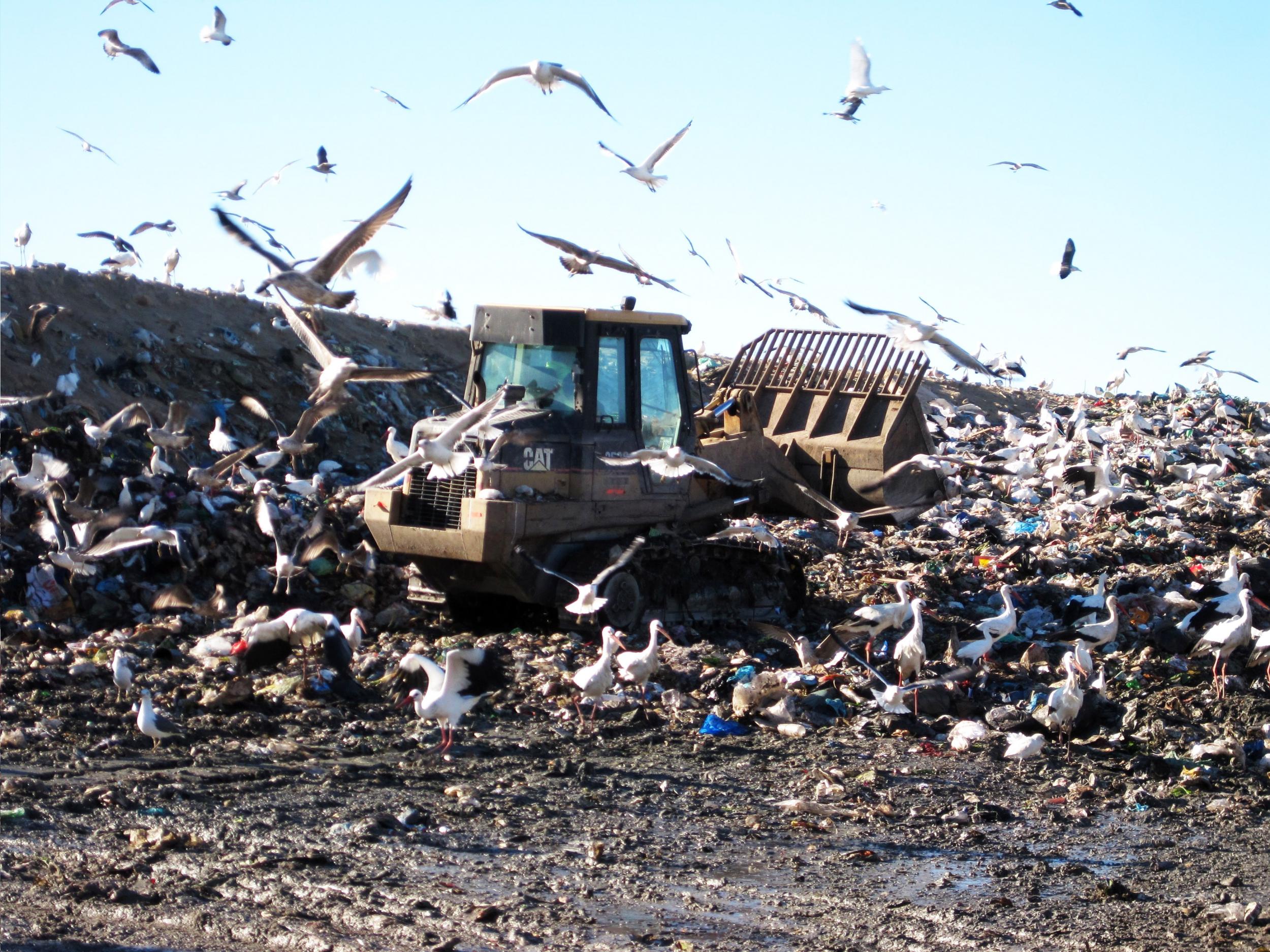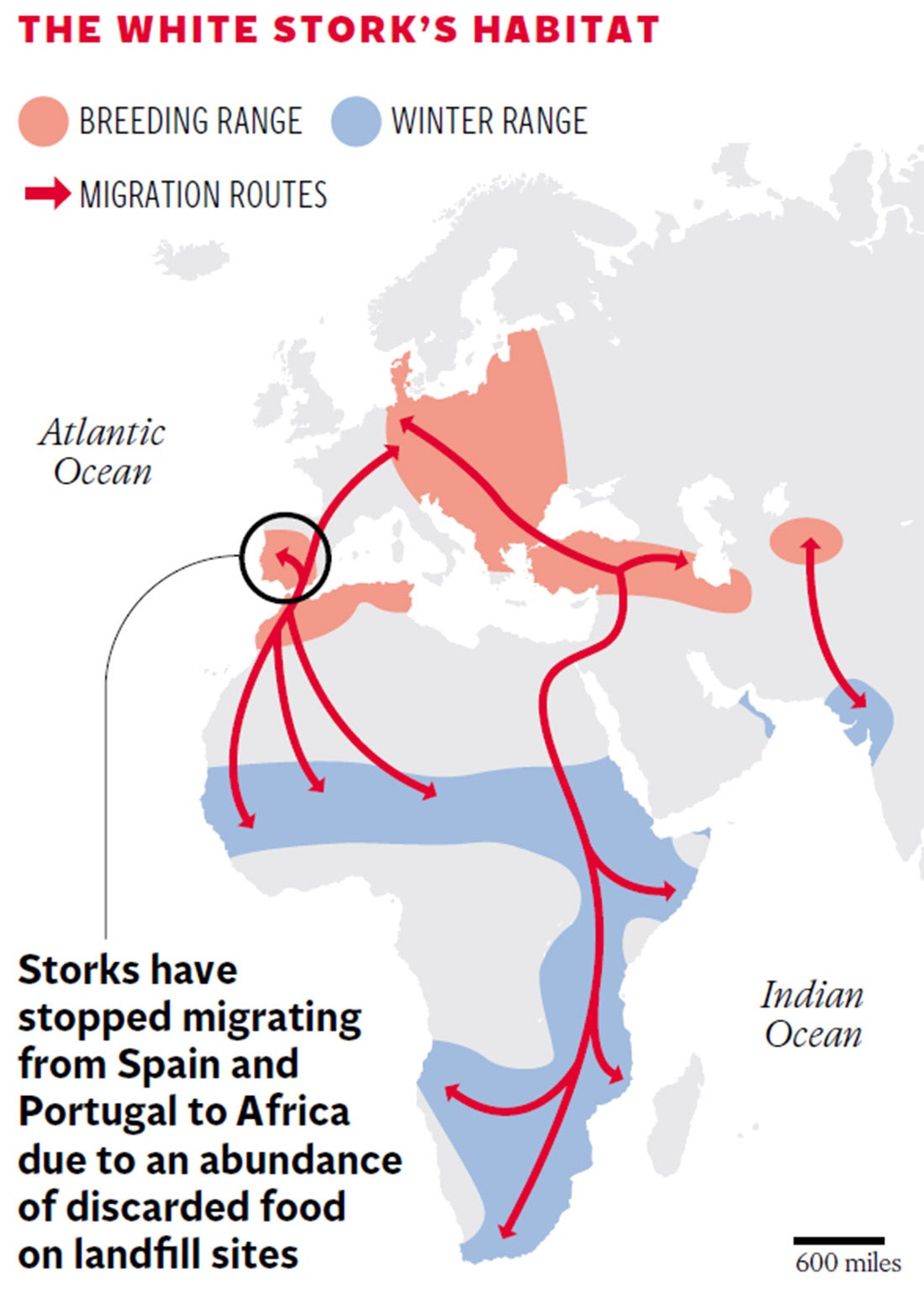Storks give up migrating to binge on junk food in landfill sites
Birds famed for flights around the planet now stay closer to easy food sources

The stork’s reputation in folklore for transporting babies to broody households owes much to the lengthy migration it makes each spring from Africa to Europe.
But the bird’s status as a long-distance migrant is under threat after new research found that white storks have become so addicted to people’s leftovers that many have stopped migrating – preferring to stay in Spain or Portugal all year round to feed on burgers and sandwiches from landfill sites.
The long-legged bird has traditionally flown from Iberia, central or Eastern Europe to Africa or the Indian subcontinent for the winter and back again in the spring – mammoth journeys that have long been reflected in European folklore.
Stories of storks finding abandoned babies in caves and marshes and taking them to households all over the world, in a basket on their backs or suspended from their beaks, have long been popularised in fables such as those of Hans Christian Andersen.
But in the past three decades storks have been forgoing their winter migration in ever-larger numbers and staying in Portugal and Spain because Iberian landfills are providing a constant and tasty source of food that leaves little incentive to make a long arduous journey, according to new research from the University of East Anglia.

The number of storks “overwintering” – staying all year round – in Portugal has grown twelve-fold to 14,000 in the past two decades, on the back of the growing food supply and milder winter weather associated with global warming, the research says.
“It’s a fantastic life, quite relaxed. They eat anything from leftover hamburgers, fish, sandwiches to dead animals. A truck load of rubbish arrives and they grab what they can,” said Dr Aldina Franco, lead researcher on the report.
“Landfill sites enable birds to use their nests all year round, which is an entirely new behaviour that has developed very recently,” Dr Franco added.
The research finds that most storks are opting to nest close to landfill sites. However, when those supplies run low some have developed such a taste for junk food that they are prepared to fly up to 48.2km (29 miles) to get their fix – a round trip of more than 95km, according to the research, which is published in the journal Movement Ecology.
The report also raises concerns that storks in Portugal could suffer badly from planned EU landfill closures because they are so reliant on discarded food.
Under new EU landfill directives, rubbish dump sites in Portugal are scheduled to be gradually replaced by new facilities where food waste is handled under cover.
The research is the first to confirm that some white storks have given up migrating and are living in the same place all year – a change brought about by human influences.
The revelation adds a new chapter to the mythology around the bird, which has long been associated with babies and families.
The folklore is partly down to the stork’s caring nature, tending to their young long past when they are able to fly and fend for themselves. They are a symbol of fidelity because they are widely believed to mate for life – which isn’t true although they do return to the same nest each year and usually mate with the same partner.
Storks have typically flown north to Europe in March or April – when a large number of human babies are born following conception in the early summer – further enhancing the stork’s reputation as a bringer of babies.
Join our commenting forum
Join thought-provoking conversations, follow other Independent readers and see their replies
Comments
Bookmark popover
Removed from bookmarks